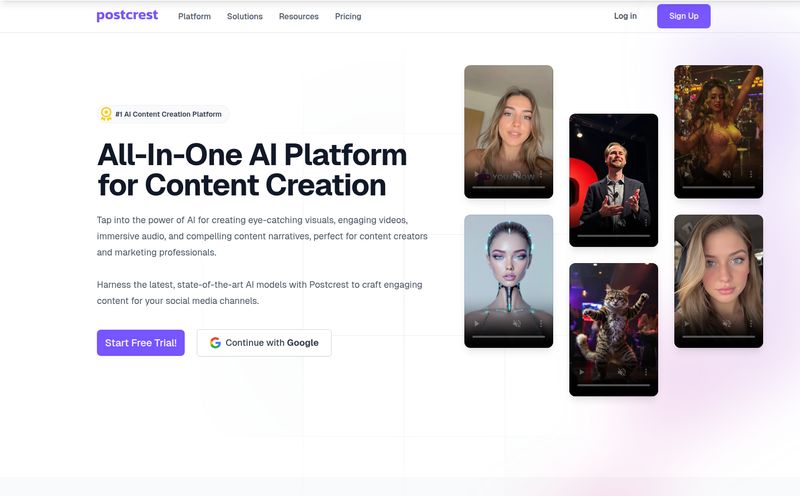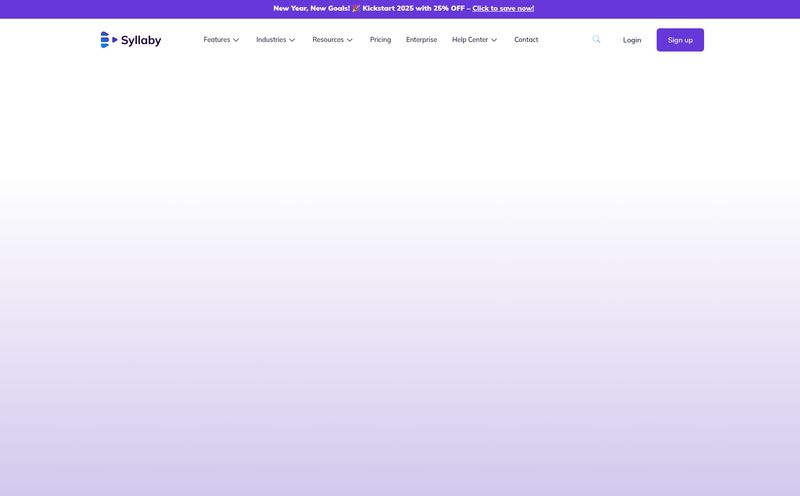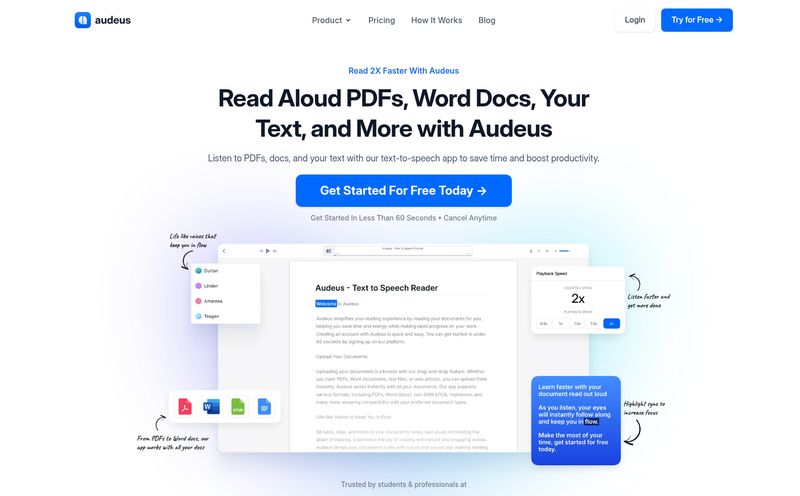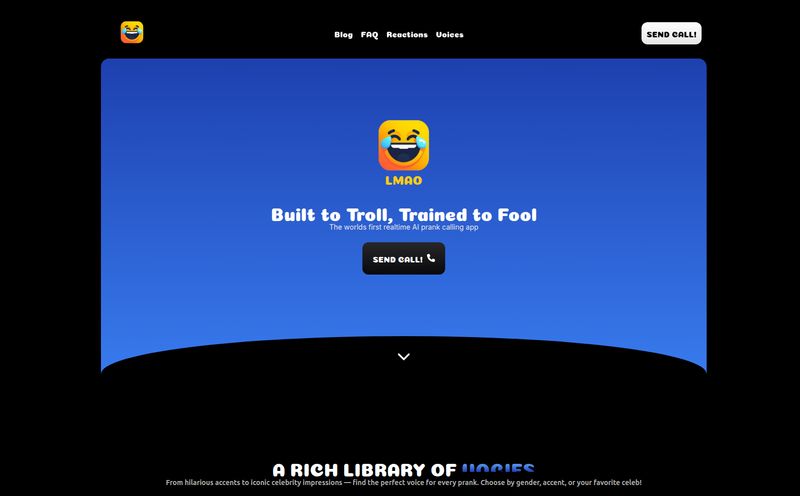I’ve been in the SEO and digital marketing game for years, and I’ve seen trends come and go. I’ve watched platforms explode overnight and others wither on the vine. But every so often, something pops up on my radar that makes me sit up and lean a little closer to my screen. Something that isn't just a new feature, but a potential shift in how we do things. Today, that something is called Controlla.
Let's be honest, for all the technological leaps we've made—from vinyl to streaming—the fundamental way we experience a song hasn't changed much. It’s a finished product. A sealed artifact. You press play, you listen, you add it to a playlist. The artist creates, the fan consumes. But what if that wall came down? What if a song was less like a painting in a museum and more like a box of LEGOs?
That’s the wild, ambitious idea behind Controlla.
So, What Is Controlla, Anyway?
At its heart, Controlla is a music tech startup looking to build a world of interactive songs. Forget static MP3s. Think of a track where you, the fan, can take the driver's seat. You can play with the components, rework the structure, and actively participate in the music of artists you follow. It’s a platform built on the idea that fans want to do more than just listen—they want to create, collaborate, and connect on a deeper level.
This isn’t just about adding a feature to Spotify. It’s a whole new ecosystem. The goal is to let fans directly support the artists they love, and for both parties to actually benefit from the endless wave of remixes, memes, and collaborations that are already happening organically across the internet. It's trying to build a playground and a bank at the same time.
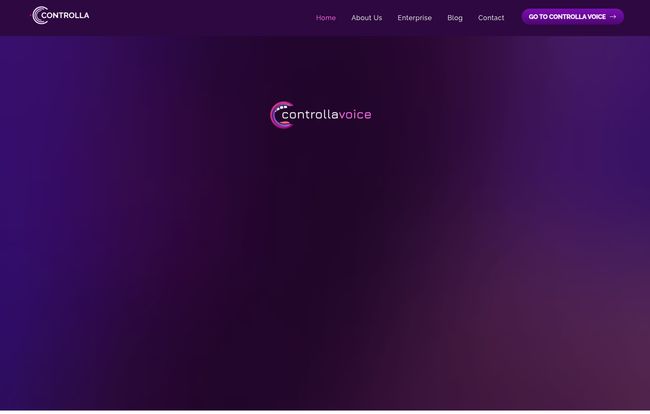
Visit Controlla
The Big Idea: Interactive Music and Fan Collaboration
The core promise of Controlla is giving users, well, control. This is where things get really interesting for me, because it taps directly into the creator economy and the way Gen Z interacts with media.
More Than Just a Passive Listener
Imagine your favorite artist drops a new single. Instead of just the final master, they release it on Controlla as an interactive package. You could potentially mute the drums, isolate the bassline, or even swap out the lead vocal with a different take. Maybe you think the chorus should hit sooner? You could re-arrange it. The platform is designed to turn passive consumption into active creation. It’s a subtle but powerful shift.
Tapping Into the Remix Culture
Let's face it, remix culture is already here. It runs TikTok, it fuels YouTube, and it’s responsible for some of the most viral moments in modern music. The problem? It’s a legal and financial mess. That unofficial remix of a pop song that blew up on SoundCloud? The artist who wrote the original song probably didn’t see a dime. Controlla aims to change that. By creating a sanctioned space for creating these “derivative works,” it opens the door for fans and artists to share in the success. A fan’s clever remix could become a viral hit, and the original artist would get their cut automatically. Now that’s a model that could fix a few things.
The AI Elephant in the Room: Voice Cloning and More
Okay, you can't talk about music tech in the 2020s without talking about AI. And Controlla is leaning in, hard. The platform includes AI-powered tools for things like voice cloning and choir creation. And I know what you’re thinking, because I thought it too. The whole “AI Drake” thing sparked a massive, and necessary, debate about ethics, copyright, and what it even means to be an artist.
How Controlla Plans to Use AI Ethically
This is where Controlla seems to be trying to be one of the good guys. Instead of a wild-west tool that lets you clone any voice you can find online, their model appears to be a closed ecosystem. The idea is that an artist would willingly upload their own voice model to the platform. They set the terms. They give fans permission to use their AI-generated voice within the Controlla environment for remixes and collaborations. It’s consent-based creation, which is a world away from the deepfakes that have caused so much trouble.
This could be incredible for creativity. A fan could write a new harmony for a chorus and have the actual artist’s AI voice sing it. Or create a massive virtual choir for a cinematic build-up. The potential is huge, but it all hinges on getting the ethics and the artist buy-in right.
A New Lifeline for Artists?
I’ve talked to enough independent musicians to know that the current streaming model is… frustrating. We’re talking fractions of a cent per stream. It’s a volume game that only the biggest names can win. Controlla offers two potential revenue streams that could be game-changers for the middle class of artists.
- Direct Fan Support: By creating a direct link between the artist's interactive content and the fan, the platform facilitates more direct payment models. It moves away from relying on a massive aggregator and puts more power (and money) back into the artist's hands.
- Monetizing Derivative Works: This is the big one. As I mentioned, if a fan’s remix takes off, the original artist shares in the revenue. This creates an incentive for artists to encourage fan creativity, rather than sending cease-and-desist letters. It turns their fanbase into a collaborative, revenue-generating community.
This model feels more like what platforms like Bandcamp have done for indie artists, but with a Web3, interactive twist.
Let’s Be Real: The Potential Hurdles
As excited as I am about the concept, I’ve got to put my analyst hat on. No platform is perfect, especially a new one. Controlla faces a few significant challenges.
- The New Kid on the Block: It’s a new platform, which means it starts with zero users. It faces the classic chicken-and-egg problem: you need artists to attract fans, but you need fans to attract artists. Gaining that initial critical mass is the hardest part for any new network.
- Reliance on Artist Adoption: The entire concept lives or dies on whether artists—from indie darlings to major stars—will embrace it. Will they be willing to share their stems and AI voice models? It requires a leap of faith.
- The Copyright Quagmire: While their model seems to address copyright for works created on the platform, the legal landscape for AI and derivative works is still being written. This will be a constantly evolving challenge. As industry bodies like the RIAA get more involved in AI, the rules of the game could change fast.
- AI Quality Control: Let's be honest, AI-generated content can be hit or miss. The quality can vary wildly, and there's a risk of the platform being flooded with low-effort, clunky-sounding content.
So, What's the Price Tag?
This is the million-dollar question, and right now, there's no clear answer. The Controlla website doesn't list any specific pricing for fans or artists. This is pretty typical for a tech startup that’s likely still in a beta phase or focusing on enterprise partnerships first. I could see it going a few ways: a monthly subscription for 'power users', a revenue-sharing model on all derivative works, or a per-project fee for artists to release their interactive songs. We'll have to wait and see on that front.
Frequently Asked Questions about Controlla
- Is Controlla available for everyone to use right now?
- As a new startup, Controlla appears to be in its early stages. Access might be limited or invite-only as they build their platform and bring on initial artist partners. Your best bet is to check their official site for the latest updates.
- How does Controlla protect an artist's copyright?
- The main idea is that artists proactively opt-in. By providing their music stems or AI voice models to the platform, they are giving consent for them to be used within Controlla's ecosystem, likely under specific terms that ensure they are credited and compensated for derivative works.
- Is Controlla just another AI music generator?
- Not exactly. While it uses AI tools, it's not about creating entire songs from a text prompt. It's more of a collaborative tool focused on remixing and re-interpreting existing music from real artists, with their permission.
- Who is Controlla really for?
- It seems to be for three main groups: artists looking for new revenue streams and deeper fan engagement; creative fans and producers who love to remix and experiment; and music lovers who want a more active way to experience music.
- Can I actually make money from my remixes on the platform?
- That's the promise. The model is designed so that if your derivative work gains traction, you and the original artist would both share in the potential revenue. It formalizes the financial side of remix culture.
My Final Take: Is This the Future?
I've seen a lot of hype. But Controlla feels different. It’s not just tech for tech’s sake. It's trying to solve some real, long-standing problems in the music industry: artist compensation, fan engagement, and the messy world of user-generated content. The road ahead is long, and success is far from guaranteed. They need to get the tech right, the user experience smooth, and most importantly, they need to convince the artists that this is a future worth building.
But if they pull it off? If they can truly make music interactive, collaborative, and more valuable for its creators? We might look back on this as the moment we all got handed the keys to the studio. And I, for one, am very curious to see what we all create.
Reference and Sources
- The official platform website: Controlla.xyz
- Industry perspectives on AI music from Music Business Worldwide: https://www.musicbusinessworldwide.com/companies/riaa/
